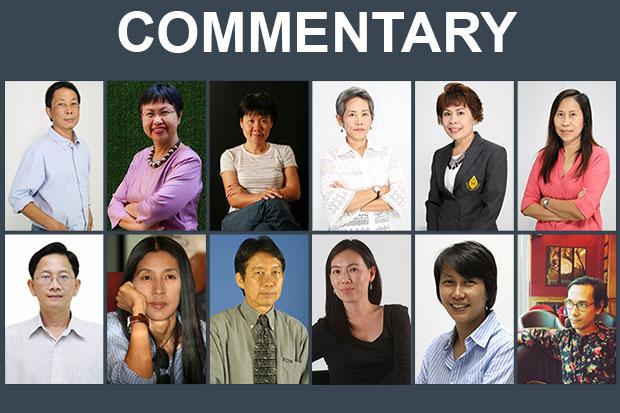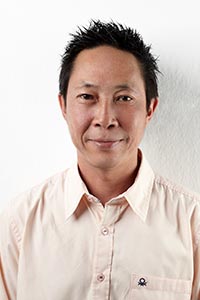
The score so far: Japan 1, China 1. But the great train battle between these two investment heavyweights for Thai turf is far from over.

Shinzo Abe last Monday scored a goal for Japan that his country badly needed to even the great rail rivalry with China. The Japanese prime minister saw China take the lead on Dec 19 when Chinese Premier Li Keqiang successfully sealed a deal with Prime Minister Prayut Chan-o-cha. Japan must have been very frustrated at seeing Gen Prayut and his wife ride a high-speed train from Beijing to Tianjin on Dec 23 during his official visit to China.
You can bluff Japan with cheap goods, military might, a bigger population, or just a larger population. But don't use rail to bluff a country that prides itself on being the nation which created the world's first high-speed train.
Japan badly needed to get back into the investment game after seeing the Chinese use the coup in Thailand to move ahead by not faltering an instant in cultivating ties with the military regime. With the Communist Party ruling it, the Chinese government can do anything it wants, while elected governments have to carefully craft their strategy in dealing with any administrations born from tanks and troops.
The leader of the elected Japanese government must not be seen visiting the undemocratic — or semi-democratic if you like — Thailand. But that does not mean Mr Abe cannot greet the leader of the coup in his own capital.
So, 52 days after Gen Prayut and Mr Li witnessed the signing of a memorandum of understanding on train investment at Government House, Mr Abe and the Thai premier were able to produce a paper last Monday affirming Japan's intention to join Thailand in other train projects.
The investment competition between China and Japan was not complete until the Japanese prime minister met his Thai visitor — quite appropriately, it would seem — on board a Shinkansen train from Tokyo to Osaka the very next next morning. At that moment, the "train game" between the two countries reached level terms.
"You can put him on your train. I can put him on mine." That was a nice scoring touch for Mr Abe as he put the investment race back on track.
Thailand has awarded China two train routes — from Nong Khai to Map Ta Phut in Rayong via Kaeng Khoi in Saraburi, and from Kaeng Khoi to Bangkok.
When Gen Prayut met his Japanese counterpart last week, he showed the Japanese leader there were still many more new lines on offer. Japan has confirmed its intention to join lucrative projects but remains undecided which one it will pick. On the priority list, however, would at least be the line linking Bangkok with Chiang Mai which has great business potential.
The routes given to China perfectly fit Beijing's ambitions as future trains could carry goods, people and also political clout from China to other Southeast Asian capitals through Laos and northeastern Thailand.
The lines to be grabbed by Japan will reinforce its presence in this country as the number one foreign investor and give Tokyo a chance to sell train technology to the kingdom.
The new train lines will be built on the 1.435 metre wide standard-gauge system, which allows trains to reach speeds of 160 kilometres per hour. The government does not want people to jump to the conclusion that the new routes will come with high-speed trains.
But as the new wider tracks could serve trains going faster than 200km/h, it is just a matter of time before high-speed trains will be seen in this country. After his Shinkansen ride last Tuesday, Gen Prayut said he hoped Thailand would have one at some time in the future.
China and Japan will fight to convince Thailand to buy their train technology, including high-speed trains, and even new locomotives, as the State Railway of Thailand plans to make a switch from diesel-powered engines to electrified locomotives for its present tracks in the way Malaysia is doing now.
China and Japan will try to outrun each other to sell trains to this new customer. But don't worry, because Thailand is adept at balancing its diplomacy to make them both feel like winners.
Saritdet Marukatat is digital media news editor, Bangkok Post.
